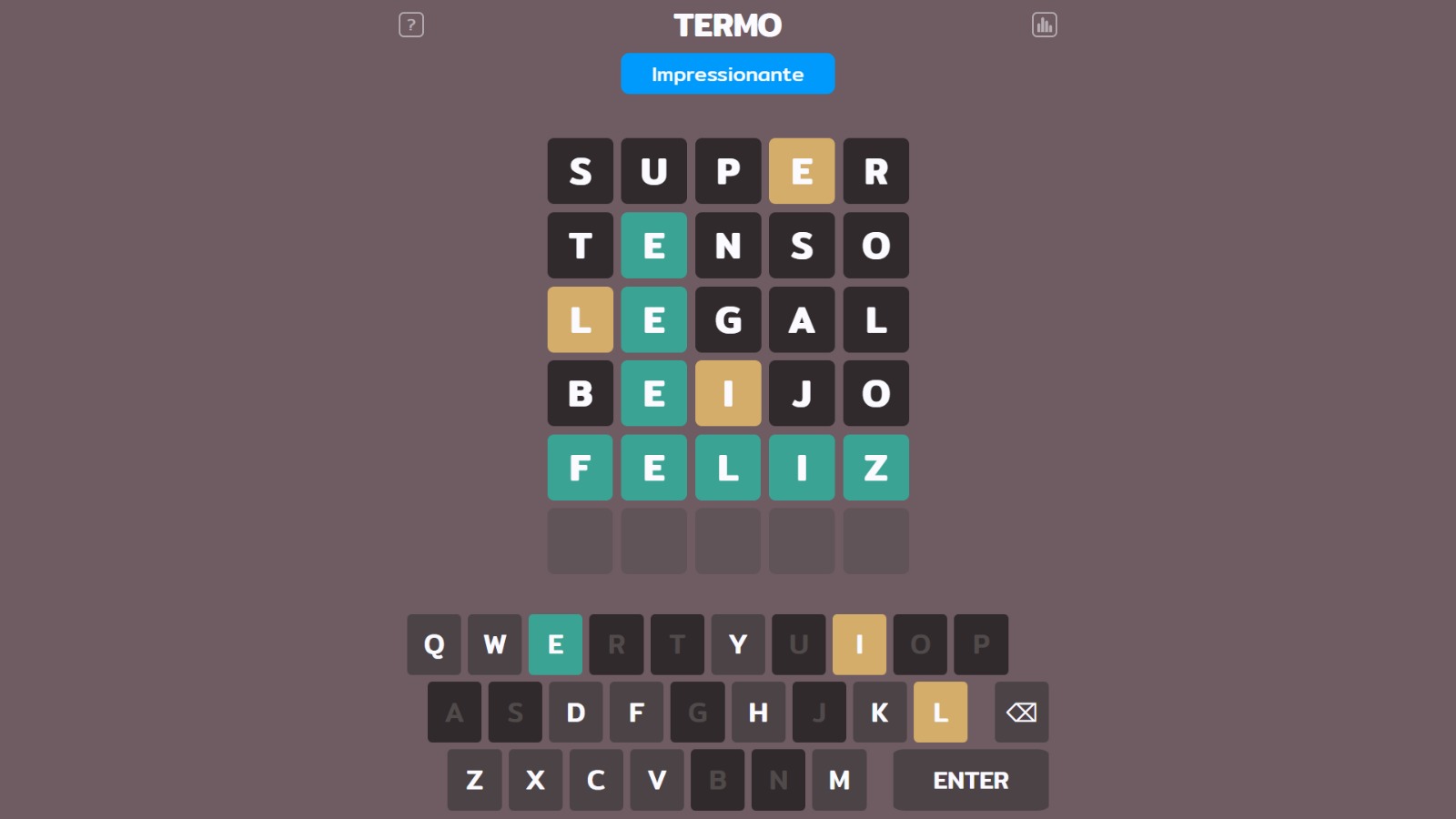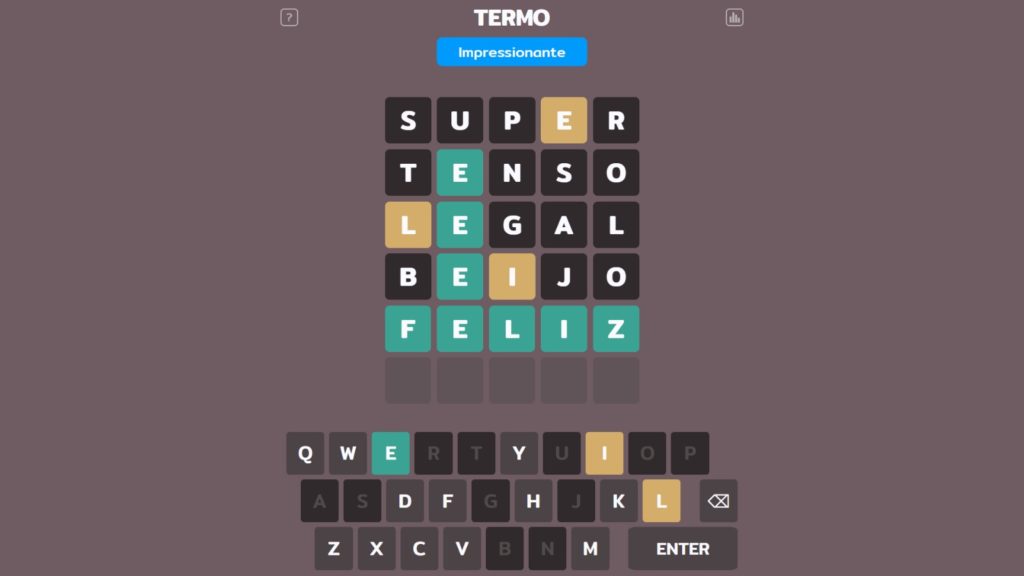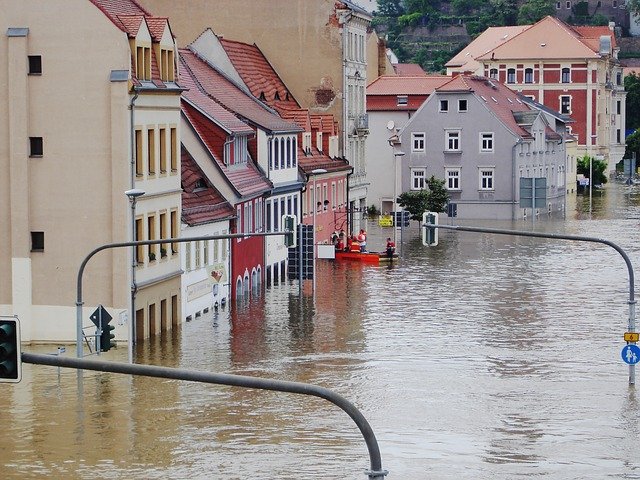برچسب: Language
-

Discussing Language Abilities in Russian – Focus
Hi, everyone! I’m Anastasia Komarova. Всем привет! Меня зовут Анастасия Комарова. (Vsem privet! Menya zovut Anastasiya Komarova.) Welcome to the Russian Whiteboard Lessons! In this lesson, you’ll learn how to discuss language abilities in Russian. Let’s get started! Поехали! (Poyekhali!) Okay, let’s look at the vocabulary. And the first word is английский. (angliyskiy) English. Английский. (angliyskiy). Английский. (angliyskiy) Next word is испанский. (ispanskiy) Spanish. Испанский. (ispanskiy) Испанский. (ispanskiy) Next word is китайский. (kitayskiy) Chinese. Китайский. (kitayskiy) Китайский. (kitayskiy) Next word is французский. (frantsuzskiy) French. Французский. (frantsuzskiy) Французский. (frantsuzskiy) Next word is португальский. (portugal’skiy) Portuguese. Португальский. (portugal’skiy) Португальский. (portugal’skiy) Next word is итальянский. (ital’yanskiy) Italian. Итальянский. (ital’yanskiy) Итальянский. (ital’yanskiy) Next one is немецкий. (nemetskiy) German. Немецкий. (nemetskiy) Немецкий. (nemetskiy) Next word is японский. (yaponskiy) Japanese. Японский. (yaponskiy) Японский. (yaponskiy) Next word is арабский. (arabskiy) Arabic. Арабский. (arabskiy) Арабский. (arabskiy) Next word is корейский. (koreyskiy) Korean. Корейский. (koreyskiy) Корейский. (koreyskiy) Next word is русский. (russkiy) Russian. Русский (russkiy) Русский. (russkiy) And the last word is греческий. (grecheskiy) Greek. Греческий. (grecheskiy) Греческий. (grecheskiy) These words in this context mean languages. For nationalities the words are a little bit modified, except for the word Russian. For example: Russian language – “русский язык” (russkiy yazyk), male nationality also – “русский” (russkiy). Russian -

Discussing Language Abilities in Russian – Breakdown
Let’s look at the dialogue. When I read, I want you to pay attention to the words showing the languages. Find what these words are and see how they’re used in the dialogue. Здравствуйте, вы говорите по-английски? (Zdravstvuyte, vy govorite po-angliyski?) Hello, do you speak English? Да, я говорю по-английски. (Da, ya govoryu po-angliyski.) Yes, I speak English. First is a formal greeting Здравствуйте. (Zdravstvuyte). Hello Then the question. Вы говорите по-английски? (Vy govorite po-angliyski?) Do you speak English? Then the answer. Да, я говорю по-английски. (Da, ya govoryu po-angliyski.) Yes, I speak English. Or Нет, я не говорю по-английски. (Net, ya ne govoryu po-angliyski). No, I don’t speak English. Now let’s look at some speaking examples. First, you’re asked the question Вы говорите по-русски. vy govorite po-russki? Do you speak Russian? And you would answer. Да, я говорю по-русски. (Da, ya govoryu po-russki.) Yes, I speak Russian. And, if you ask about Japanese. You can answer. Да, я говорю по-японски. (Da, ya govoryu po-yaponski.) Yes, I speak Japanese. Now let’s look at the sentence pattern. This pattern will be the structure that all of our dialogues will follow. Да, я говорю по-[language]. (Da, ya govoryu po-[language].) Yes, I speak [language]. You may have noticed here that the word for English по-английски (po-angliyski) is a little different from the vocabulary section. The words in the vocabulary section are all adjectives referring to the language. Some example phrases are “английский актёр” (angliyskiy aktyor) – English actor “русский язык” (russkiy yazyk) – Russian language; “немецкий паспорт” (nemetskiy pasport) – German passport. When referring to the ability to speak a language the prefix “по” (po) is added with a hyphen, and the ending “й” (y) is removed. This is done for every language. Examples are по-русски (po-russki); по-японски (po-yaponski). -

Discussing Language Abilities in Russian – Review
Do you remember how to say “English?” английский. (angliyskiy). английский. (angliyskiy). And how to say “Spanish?” испанский. (ispanskiy). испанский. (ispanskiy). Do you remember how to say “Chinese”? китайский. (kitayskiy). китайский. (kitayskiy). And how to say “French”? французский. (frantsuzskiy). французский. (frantsuzskiy). Do you remember how to say “Portuguese?’ португальский. (portugal’skiy). португальский. (portugal’skiy). And how to say “Italian”? итальянский. (ital’yanskiy). итальянский. (ital’yanskiy). How to say ‘German?” немецкий. (nemetskiy). немецкий. (nemetskiy). Do you remember how to say “Japanese?’ японский. (yaponskiy). японский. (yaponskiy). And how about the word “Arabic?” арабский. (arabskiy). арабский. (arabskiy). Do you remember how to say “Korean?’ корейский. (koreyskiy). корейский. (koreyskiy). And how to say “Russian”? Русский (russkiy). Русский(russkiy) . Do you remember how to say “Greek?’ Греческий (grecheskiy). Греческий (grecheskiy). Do you remember how to say “Yes, I speak [language]”? Да, я говорю по-[language]. (Da, ya govoryu po-[language].) Да, я говорю по-[language]. (Da, ya govoryu po-[language].) Do you remember how to say “Yes, I speak English”? Да, я говорю по-английски. (Da, ya govoryu po-angliyski.) Да, я говорю по-английски. (Da, ya govoryu po-angliyski.) And how about the phrase “Yes, I speak Russian?” Да, я говорю по-русски. (Da, ya govoryu po-russki.) Да, я говорю по-русски. (Da, ya govoryu po-russki.) Lastly, how would you say the phrase “Yes, I speak Japanese?” Да, я говорю по-японски. (Da, ya ne govoryu po-yaponski.) Да, я говорю по-японски. (Da, ya ne govoryu po-yaponski.) Well done! In this lesson, you learned how to discuss language abilities in Russian. Thanks for watching! I’m Anastasia and I will see you again on RussianPod101.com. До скорой встречи! Пока-пока! (Do skoroy vstrechi! Poka-Poka!) -

April 2025 Inner Circle: The 7 Skills You’ll Need for Language Mastery
Welcome to Inner Circle. I’m Kyejin and I’m joined by my co-host, the founder of innovative language, Peter Galante. Hi, everyone. Peter here. So, Kyejin, in our last lesson or our last talk, we spoke about how to learn a language faster with… Coaching. And today, we are going to talk about… We’re going to talk about seven skills you need for language mastery. Okay. Okay. Sounds very interesting. Yes. I want to know about these skills. What are these five… Not five. Seven skills. So, we here at innovative language break it down into seven skills. There’s reading, writing, speaking, listening. Four skills. Then there’s… We add grammar, vocabulary, and finally, culture. Okay. So, these are the seven skills. Why is it important to learn these seven skills? Is it important to learn all of these skills? Yes and no. So, if you have a specific purpose, if you’re leaving for a foreign country next week, you don’t need them all. You kind of need to be able to speak and I don’t know, whatever you feel you need, just a few words. So, it’s kind of relative to your commitment, your motivation, your goals, right? But if you’re serious about committing time to it, yeah, kind of you need all the skills. Okay. Why is it that… But hang on. Yes, yes, yes. More… It’s like what your goals are. You have to ask yourself what your goals are and what your timeline is. So, any language study is good. But if you want to comprehensively get better, you’re going to need all, but if you have a short-term goal, if you’re an opera singer, you just need to be able to say the words without any accent and sing or sing the words without any accent, right? You might not really need to know what it means. So, it just depends on your goals. Okay. So, can I finally ask this question? I would love to know because I know most of the learners are interested in speaking. So, can they just practice speaking only? Why are these seven skills important for them to learn all? Yeah. And that’s why I mentioned these pairs before. These pairs are kind of important. If you’re going to be speaking, and speaking is by far the number one most popular skill people want to learn, but it’s kind of like if you’re going to speak, you need to understand what is said, right? True. If not, you won’t be able to have a conversation because you speak, listen, speak, listen. And arguably, the least important is writing, and for me, each learner is unique, each approach is unique, but I always start with reading. I always start with reading. Reading. Okay. Why do you start with reading? Because if you’re reading, then you can read out loud, so you’re kind of practicing reading and speaking at the same time. You can constantly immerse yourself in a language by always being, having something to read in front of you or using the internet to read material. And for me, it gives a good basis to extend out into the other skills. I see. How about you, Kayjin, where do you like to start? Yeah, I actually agree with you. I usually start with reading, usually the dialogue, reading, and also speaking, too. Yeah, I read out the dialogue or I try to speak with the teachers or native speakers. So speaking and reading, those are the first things. Plus, of course, I think we talk about these seven skills, and I didn’t intend to learn each skill separately, but naturally, I combine these skills and learn together. For example, as you just said, I read and also speak out, read out the text, then it also helps the speaking. Also when I speak with the native speakers, then I also listen, and I also pick up some words. So naturally, I think I’m combining all these skills when I learn. Yeah. There’s the four skills that we spoke about, and then there’s these other skills. There’s grammar and vocabulary and culture. So let’s start with culture, because this is kind of an interesting one. Culture you probably even start before you study a language, like you may be familiar with some Japanese culture before you even start learning a language. Because people watch the anime or… Or read poetry, as yes, but sure. Yeah, read or manga or like… Or novels. Movies, novels, great. Or watching the TV shows or Japanese news, I guess. Yeah. There’s many things, but even one step back, you may come into contact with some Japanese things such as origami, or you may understand some etiquette of bowing, or you may, if you’ve eaten sushi, understand some greetings that are said to you when you enter or exit a sushi shop, or you understand how to use the chopsticks. Some of these facts pour. And this applies to other languages too. You may understand more about the culture before you even start to learn the language. But when we study the language, culture is not a language itself. Is it still important to learn? I would argue that culture may be more important. It’s one of the most important things. It’s kind of like, right, you only get one chance to make a first impression, right? So in Chinese culture, when you toast, you will lower your glass depending if you’re toasting with someone with higher social status or grandma or something like this, right? Is it something similar in Korean culture? Do you have a custom when drinking? Yes, exactly. I think it’s exactly the same. So I lower my glass if someone is higher social position than me. Yeah. So inside of Japan, this isn’t so widely, like this culture isn’t so wide, but I always And sometimes I’ll meet someone who realizes like, wow, you’re very refined. Your culture or understanding is at a very high level. And even the Japanese people, like what’s going on? Sometimes they don’t even pick up on this. So in this case, this is kind of an extreme case, but that small cultural detail allows me to have a very good impression on someone. And if we reverse that, again, we’ll borrow Japanese culture. If you stick your chopsticks into the rice and release them, and no matter how good of an impression you’re having on someone, it could come across as, wow, you know, wow, This guy’s Japanese is amazing, amazing, and then all of a sudden, this cultural misstep can result in maybe some very big consequences in that other person’s image of you. So yeah, culture, I think, is very important. Yeah. And also, if you want to understand the details, nuance of the language, I think understanding culture helps a lot. Yeah, I remember when I was teaching English, too, one of the best examples I could give of this, I was teaching a very high level student, and the very high level student spoke so fluently on so many topics. And one of the classmates sneezed, and the person said nothing. And one of the way lower levels was like, bless you. And I was like, I remember after the lesson, I wrote, that person’s English is really good because it was not comparable at that level, but the understanding of the culture and the timing of that particular thing totally changed my perception of that person’s understanding of the language. Yeah, true. And those are really interesting examples. Yeah, cultures, I agree, cultures are important. Yeah. So that’s why I think it deserves to be a skill. Then much like social skills and table etiquette is very important. Yeah. So if you want to use the language appropriately, yeah, culture helps. And today, yes, you look great. No, no, I was taking my elbows off the table because you’re not supposed to do that well. So I was thinking about the table etiquette. Okay, okay. Right? Like if you have your elbows on the table, it’s not appropriate, you should have your elbows. Yeah, especially when you have a meal. Yeah. Yeah. Well, we are not having a meal, so I guess it’s okay in podcast culture. True. I guess. Okay, a bit distracted here, but then we move back to the grammar and vocab. So these kind of support the other skills, right? The better your conversation and your conversational skills, the better your speaking, the more you need to lean on your vocabulary and grammar. Yeah. For me, I actually start with grammar. I pick 10 grammar patterns, especially conditionals, if something, something, which are actually complicated grammar, but I like to try to master those first. Wow. Do you have a preference for grammar vocabulary? Well, I definitely start with the easiest one, like I am or it is, yeah, always. I start with that one. And then I move to the question and also giving an order or like, please do something. Please give me this. I want this. Yeah. And then the grammar patterns are nice because they’re kind of fixed and you can repeat them over and over. Yeah. And if you know a different vocabulary, then you just replace the word and you can make tons of the sentences. Yeah. Yeah. So. And that vocabulary is kind of straightforward here. There’s lots of things out there, including content on our site where you can see the most common words, right? So that really helped from when I first started studying Japanese, where the words were quite random, not related to the frequency. Yeah, true. So learning the words that are commonly used are something that we should learn first, especially for beginners. Okay. So we spent quite a bit of time on this. Kyejin, why don’t we talk about how our members can practice these seven skills and what we’ll do is give examples with our learning system. And of course, you can apply these to your current, how we are learning right now. Maybe there’s something new and maybe we already covered something. Good idea. And actually, when if our viewers is our premium or premium plus users, they just need to follow our curriculum to master these skills. But there is a way to improve their skills, like for example, if it’s speaking, we have lots of tools on our website, like dialogue, roleplay, so they can practice roleplay with AI. So wait, do you want to start with speak? Let’s go skills one by one. Let’s start with speaking. Sure. Okay. Speaking. How about the dialogue roleplay or voice recording tools to repeat after each line and compare with a native speaker. Okay, that sounds very, very good. So those are the ones that I actually use. If you’re familiar with the system, of course, you’re progressing along a pathway. A pathway is centered around a conversation. Right. It’s not always a monologue, but usually a conversation has multiple people involved. So the kind of goal is that you would master that conversation. Right. And inside the conversation is usually grammar and vocabulary. True. And also culture tips. So which we usually break down. So we kind of help you with the pronunciation. We go to slower speeds. You could hear the kind of intonation and things like this. So inside of the audio and video lesson, there’s usually a point for you to practice your speaking. And that is using a technique called shadowing. Okay, Kyejin? Yeah. So shadowing dialogue, for example, you listen to the dialogue and read after each line. Yeah. So you can repeat after you hear something, you can repeat at the same time, as close to the real time speed as possible. And that should help you. Also at the end of certain lessons, there is a practice that gives you time and a prompt to speak. So it’ll say, how do you say cat in Korean? And it’ll pause and it’ll give you time to kind of actively recall it and then say it out loud. Yeah. So our lessons are especially focusing on, of course, focusing on many areas too. But we really, these lessons really help people speak well. And yeah, I really like the shadowing. Also recording my voice and comparing with the native speakers using our voice recording tools. Yeah. So what we’re speaking about now is, again, if you’re passively studying, you’re listening to the podcast, there’s times for you to speak, actively produce something. Now Kyejin just mentioned, of course, that’s on the site. You can go to the site and these tools are on the site or in the app. First one is to listen line by line and then record yourself practicing. And also you can record yourself and send it to your Premium Plus teacher if you have access to My Teacher Messenger app. So these are, then you get actual feedback from a teacher. So these are two ways to use the system and there’s another way that we recently introduced, which is the dialogue roleplay. Yes. So this is a new feature on our website and you can choose one character and play a roleplay with AI. And the AI will help you by giving you feedback on your performance. Yes. It’s your grammar or vocabulary. So it’s a very interesting tool to try. Yeah. Okay. So lots of things for speaking on the site, as that’s a very popular thing. Now let’s move on to speaking’s kind of counterpart. We have listening. So listening, as I mentioned before, there’s quite a lot of content that is based around conversation. You can listen to an audio file. You can watch a video, which gives you visual cues while you listen along. There’s also vocabulary and sample sentences on the site that you can play over and over. We have dialogue specific tracks so you can listen to conversations again and again. So there’s quite a lot of material for you to enjoy. Exactly. We also have listening comprehension series too, if you only want to focus on the listening skill. So that would also be useful. Yeah. And audio books we have too. You can listen. The listening not only like the audio book or the listening with a podcast that we have not only will help you improve your listening skills, they’re also prompts to speak aloud. And we’re covering inside of these conversations, vocab, grammar, culture, you’re listening and you have the opportunity to speak. So these are done very well and meant to progress in a comprehensive way. If you take a look at the curriculum, you can see the grammar points you’ll learn, the vocabulary you’ll learn, and as you progress, you can kind of test yourself to see how much you’re retaining. True. Okay, so shall we move on to reading now? Yeah. Okay. Again, this is my favorite. So for each lesson there, we have the text for everything that is said. So the whole transcript of an audio or video lesson. And we also have lesson notes for each lesson. So let’s take the audio files first. So as you’re listening along on the website or on your device, you can read along. Right. So you can see everything that’s said in the conversation and you can see everything that was said in the lesson itself. True. So for higher levels, this is quite nice because you’re getting all of the things that are said. And also additionally, we have the extensive reading video series or other reading comprehension videos too. So check it out if you’re interested. Yeah. And what you can then do is you can practice reading out loud on your own and you can also communicate with your premium plus teacher. Ah, right. Actually, when I have a conversation with my premium plus teacher, they write in the target language and I read a message. So that’s also involved reading. Yeah. And if you’re writing to your premium plus teacher, the teacher will write back in that target language. So you can prompt your teacher with a journal entry to get some corrections. You can ask a question to get a response. So these are all very good ways to practice your reading. Yeah, true. Okay. I think we talked about the reading now. How about the writing? I think writing is another of your favorite skills to study, right? So our system for writing is slightly limited. So the best way to practice your writing is to have a premium plus membership and communicate with your teacher. And also another good way to practice writing is to copy the dialogues. So the dialogues are written in the target language. So you can copy the line or you can just listen to the dialogue and do some dictation. That will be also nice writing practice too. Yeah, these are powerful ways to study by yourself. But yeah, if you do have your premium plus teacher, you can write down something, take a picture of it, and send it to your teacher for feedback. Yeah, they’ll give you the corrections. And if you request, they also record the lines for you and send the audio file. Yeah. Okay. Next, we have shall we do grammar? Of course, grammar, yes. So our lesson is focusing on one grammar per lesson, right? Of course, it depends on the lesson. But if you follow our main core pathway, that will be the grammar lessons. Each conversation is usually centered around one grammar point, which we break down in the lesson itself to help you get a better understanding of it, help you use it. So this is the number one way to get introduced to grammar points and learn how to master them. True. You can also find the grammar rules in the lesson notes and also the grammar page on our website. Yeah. So you can each lesson see this, plus in some of our textbooks, we have grammar points. So plenty of information on grammar. Yeah. Also, they can take some assessment to test their grammar skills. Yes, as you progress, before you progress and afterwards, we have many tests to see how your comprehension of grammar relates to your progression in the pathway. Yeah, true. And if you also write to your teachers, you can also practice grammar with a teacher. So that is another way to practice grammar. Yeah. I think we have a few series, too, that are specifically focused on grammar. Yes, that’s true. So if you find these series on the site, you can learn how to master the key grammar points for the level that you’re at, usually for beginner levels. Yeah. Okay, so shall we talk about the vocabulary now? Yes. Yes. So all rules lead back to lessons in a way, and so each lesson, there’s quite a comprehensive and especially over a kind of unit of lessons, you really get introduced to quite a lot of vocabulary. Right. And if you are very enthusiastic, and you want to learn even more vocabulary, we also have the word list on our website. Plus, there is a spaced repetition of flashcards that helps you practice the vocabulary. So that’s also another good way to practice vocabulary. Yeah, these smart flashcards will help you learn faster. And the words are broken down by frequency. We have the core 2,000 words. So the first 100 words have a higher frequency than the next 100 words. So if you start from the beginning and you get to about 800 words, you’ve got a really good grasp of, not a great grasp, but you have a very good foundation for speaking the language. Yeah. And 800, 1,000, 1,200 up to 2,000, right? Yeah. In addition, there are many series designed around vocabulary. True. And whenever I see new vocabulary on our website, I save that on the word bank. So just to review the vocabulary, well, I mean, there are so many vocabularies. I can’t always write down on my notebook because I’m on the train sometimes or I’m going somewhere. So then I just save it on the word bank for review later. Yeah. There’s also Word of the Day. You get one new word every single day. So there’s many ways to improve your vocabulary. Yeah. Plus, do you remember we also have PDF CCs with a lot of words and phrases. So it sounds like with us, with our system, you will never run out of learning materials if you want to learn more. Yeah. Okay. And last, we have culture. Yes. And for the culture, we have some cultures already introduced in our each lesson, right? Yeah. So as the language learner and language teacher walk you through progressively through the curriculum, we’re constantly introducing interesting cultural nuance and cultural skills so that you can navigate many difficult situations. Yep. We also have the culture lessons and also in our textbook, cultures are introduced too. Yeah. Wow. So these are the seven skills. How you value them, that’s an individual choice. But if you do want to get a comprehensive, if you want to have a comprehensive approach to learning language, these are the seven skills you need to focus on. And this is how we would go about it using our platform. Yeah. And you can extend this to how you study with your teacher. If you have your teacher, maybe there’s a transcript or the teacher that you meet with to keep track of all the words. This is kind of up to you, but try to see the language learning skills as these seven skills. Yeah. And yeah, as just Peter said, there are many ways to learn these skills, but if you don’t know how to make, how to practice these skills, just follow our pathway, then you can just master these skills easily because our program is well designed for that. Okay, Peter. So if our viewers only remember one thing from this lesson, what should it be? There’s no right way to learn a language, but there are, as we like to say, seven skills. And as long as you recognize what skill you’re learning every day, your progress will really start to move fast. So for example, if you’re listening to an audio lesson, the main skill that you’re focused on is listening. Sure, you can speak inside of it by shadowing and you can talk out loud when you’re prompted, but the main skill is listening. Of course, if you have a lesson with a tutor or live or speak with your friend, the main thing is speaking, unless some people might want to read. So just kind of understand that there’s usually a main skill. But after that main skill, you can practice other skills. Like if you’re reading, you’re practicing grammar, vocabulary, but you’re really focused mainly on reading. Be aware and then try to balance the week. If you’re always reading, just keep track of how you’re progressing. If you’re always reading, you might want to try practicing some writing, or you might want to try to practice some speaking, not just passively learning, but try to produce something. Right. So it’s very important to balance our learning instead of focusing on one thing if someone wants to be truly fluent in one language. Yeah, and producing something, I feel, is much harder. So trying to speak or write, you need to pull on vocabulary, grammar, and culture, and all these things to actually make something. So try to realize that you should practice productive skills, such as writing and speaking. Okay, that sounds very good. So for everyone watching, please let us know what you think. And if you have any thoughts, let us know by email. Email us at inner.circle at InnovativeLanguage.com. Thank you, everyone, and see you next time. Bye-bye. -

Wordle in Portuguese? | Portuguese Language Blog
Fala, pessoal. Tudo bom? If you’ve checked as redes sociais (social media) lately, you probably noticed some of your amigos e parentes (friends and relatives) sharing an enigmatic picture composed of tiny coloful quadrados (squares). I was intrigued myself, until a friend introduced me to the captivating Wordle.
The story behind it is quite touching, actually. The jogo (game) took the world by storm, although it was originally intended as love gesture designed by engineer Josh Wardle, who wanted to create something unique for his word-game-loving girlfriend. And it was somehow out of passion, in this case for the Portuguese language, that tech developer Fernando Serboncini came up with our very own version, Termo (term in English).
Como jogar | How to play
Termo works pretty much like Wordle does. Os jogadores (players) must find out a palavra certa (the right word) and they have seis tentativas (six attempts). They start out by typing any 5-letter-word into the grid. When they press ‘enter’, some letras (letters) might change. If they turn amarelo (yellow), it means that the letter belongs in the word, but it is na posição errada (in the wrong position). The ones that turned verde (green) both belong in the word and are in the right position. The cinzas (grey ones) do not belong in the word and should be avoided when you adivinhar (guess) again. So all you have to do is keep on trying until you get a resposta correta (the right answer). Simples assim!
It’s not just highly viciante (addictive), it’s also very educational too! And if you’re wondering whether your Portuguese nível (level) is good enough to suceed at (or have fun with) this game, maybe you could see it as an opportunity to expand seu conhecimento (your knowledge) by using an online dictionary. I would recommend Michaelis, Priberam or Dicio. And no, it’s not trapaça (cheating) if you’re still learning the language! It can help you conhecer novas palavras (get to know new words) while, well, increasing your chances of ganhar (winning) as well. No harm in that!
And don’t worry about desperdiçar seu tempo (wasting your time). New words are available only uma vez por dia (once a day), meaning that, no matter how tempting it is, you’ll only be able to play it once and then try again the next day. Feel like practicing Portuguese or testing your skills in the language? Hit the link below:
Want to learn more about Wordle? Don’t take my word for it! You can read what Gary has to say about it here:
And, of course, don’t forget to compartilhar (share) your results!
-

Natural disasters in Portuguese | Portuguese Language Blog
Fala, pessoal! What’s up, you guys? Como está o clima onde vocês estão? What’s the weather like where you are? Fevereiro (February) means freezing cold temperatures in the northern hemisphere, but scorching quente (hot) weather for those down south, like us Brazilians. At least it’s a break from the raging tempestades (storms) we saw in janeiro (January). And sadly, as far as extreme weather is concerned, the event that influenced me to write this text was an unfortunate one.
You might have heard about the tragic desabamento de rochas (rockfall) in the touristic city of Capitólio last month. The incident made the international headlines, featuring a striking video where you can see a large cliffside rock formation collapsing onto three barcos (boats). Ten people were mortas (killed) and 32 others left feridas (injured) as a result of the impact. Firefighters believe that the continuously heavy chuva (rain) affecting the area might be largely responsible. If you want to read more about it, find further information in Portuguese here or in English here.
Although recent climatic adversities have been linked to the effects aquecimento global (global warming), desastres naturais (natural disasters) have always been a part of history. Today’s post will expand on this one from 2012 with a few different phenomena and other examples. Vamos nessa!
drought – seca
- Israel has been suffering from its longest drought on record | Israel está passando pela sua seca mais longa já registrada.
hurricane – furacão
- Hurricane Katrina is said to be one of the worst catastrophes of the century | O furacão Katrina é considerado uma das piores catástrofes do século.
blizzard – nevasca
- Over 12 people were killed in the avalanche, caused by a blizzard | Mais de 12 pessoas morreram na avalanche, causada por uma nevasca.
heatwave – onda de calor
- The heatwave sweeping across Europe is predicted to reach France next week | A onda de calor passando pela Europa está prevista para chegar à França na próxima semana.
flood – enchente
- All meteorologists agree that heavy rain and floods can be expected this season | Todos meteorologistas concordam que chuvas fortes e enchentes podem ser esperadas nesta estação.
earthquake – terremoto
- The 2011 earthquake in Japan claimed tens of thousands of lives and over 300 billion in property damage | O terremoto de 2011 no Japão custou dezenas de milhares de vidas e mais de 300 bilhões em danos materiais.
landslide – deslizamento de terra
- The school’s roof caved in during the landslide | O telhado da escola desabou durante o deslizamento de terra.
volcanic eruption – erupção vulcânica
- A volcanic eruption warning has been issued in Iceland | Um alerta de erupção vulcânica foi emitido na Islândia.
wildfire – incêndio florestal, queimada
- A large portion of the area’s native greenery was destroyed in the wildfire | Uma grande parte da vegetação nativa da área foi destruída na queimada.
hailstorm – tempestade de granizo
- The southern provinces of Chine were hit by a severe hailstorm, which brought serious losses | As províncias do sul da China foram atingidas por uma forte tempestade de granizo, que trouxe sérias perdas.
Do you know how to falar sobre o tempo (talk about the weather) in Portuguese? Don’t miss out on these previous posts:
-

March 2025 Inner Circle: The Power of a Language Coach
Welcome to Inner Circle. I’m Kyejin and I’m joined by my co-host, the founder of Innovative Language, Peter Galante. Hi everyone, Peter here. Welcome. So what did we talk about last time? Last time we spoke about learning with routines. Right. How about this time? Or actually create language. Yes, that’s right. This time we’re talking about learning with a coach. We talked about coach last time a little bit, and this week, I mean this month, we are going to talk more about coaching and a coach. That’s right. Okay. So shall we talk about the coaching a little bit? Because well, some people might not remember what it is exactly. Is it coaching different from a teacher? Yes. Maybe we should start with a definition. Yes, I agree. So teacher is someone who helps you learn the language. So they focus on grammar, vocabulary, the language itself. Yeah. Then coaching, there’s a few aspects, but maybe there’s three that we can talk about. Okay. One is learning tactics. So someone might get to know you and then figure out a way to help you learn faster. Okay. So they help you build a good learning strategy. Yes. Perfect. Learning strategy. So second one is motivation. And when it comes to motivation, that’s helping you find why you want to study and keeping you engaged. I see. So yeah, I agree. Actually, when it comes to language learning, motivation is a key, in my opinion, very often, at least to me. That’s it. Yeah. Everybody has kind of what they feel. And I think motivation is very powerful. Yeah. How about the third one? The third one kind of falls into motivation, but I think it’s slightly different and actually more important these days now that we have AI. So the third one, or many online courses and so much material is readily accessible. So the third one is accountability. Ah, I see. So because there is a coach then you feel more responsible for your language learning progress because you have to share with that. So you feel, yeah, comfortable more. Yeah. So depending, a great coach can do all three. But, you know, great coaches are sometimes quite hard to find. I see. And so for Kyejin, for you, which do you think of the three? So we kind of, I think we said learning strategies for kind of focusing on knowledge. So if you have a coach that’s going to teach you a skill, so skill based coach, motivational coach or accountability coach, Which do you prefer? Which do you think is the most valuable? To me, second and third. Yes. Yeah. If I mean, we are motivated when we start learning a language. But as time goes by, maybe we reach some goals that we want to achieve. For example, it can be the test or maybe I want to visit the country. So I’m learning. But after visiting, like I lost the motivation. I need motivation. I mean, I can have motivation at the beginning, but it’s very difficult to keep the motivation for like three years, four years, five years, ten years. So I would like to get help with that. And the other one, too, the accountability. Yeah. If someone checks in, then naturally I feel pressure. I mean, good kind of pressure. And I feel, oh, I have to do it. I should not postpone. And when I feel tired or when I feel lazy, I sometimes skip it. But because there is someone, I feel like, oh, I want to do it. I want to show my progress to that person. How about you? I agree with a lot of what you said, particularly right now. You know, when I went to school in the 80s, I think the teacher had. Covered a lot of these, you know, primarily, one could argue that schools are the ultimate form of accountability. You have to show up, they take your attendance. If you don’t come enough, then you cannot go on. So it’s like you have accountability to at least show up. Then you’re supposed to try. So, but often you had to go there to learn. Yes. So it was kind of hard to. It was knd of subtle differences. You went to school to learn, you had to show up. The coach, the teacher was checking your homework, holding you accountable as you progressed throughout the year, right? Mm hmm. Yes. But now in 2025, I firmly believe if you need to learn a subject and you’re highly motivated, you make a very big difference in 48 hours, like one weekend. True, true. But where’s that motivation, right? So if you’re in a job interview on Friday, I know someone who did this, they had a job interview on a Friday, and they’re in the interview, someone said, do you know this coding language? And the guy said, yeah, of course I know this coding language. Okay, well, you know, Monday, we’re going to test you on it. Can’t wait. What do you think he did for the weekend? Wow, he studied with AI and YouTube materials online, and he could answer all the questions, I guess. Yeah, no AI at that time, but yes, that’s the premise, that he went. So now we’re in an age where you really… What is the true benefit of school? That’s a topic for a different day, but, you know, if they bring 20 or 30 or 40 kids into a room and everyone’s driving at the same speed, picture a road, and you have all the cars with the car in front saying, 20 miles an hour. Some people are like, oh, this is a little fast for me. Some people are like, this is too slow for me. Some people are sleeping. Some people are like, it’s like, it’s chaos, right? Yeah, yeah, right. But if you want to progress on your own, there are sites like ours where the paths are laid out. Now comes the difficult part for humans, human nature. How do we stay on the course at set intervals? So for me, accountability is kind of the most important. And that’s what I focus on with my coach, because if you’re putting in the hours, the progress should come. The tools are there now that you can progress very rapidly. I see. So that’s why the coaching is important. And you are using a coach. You have a coach now. And we will have a coach. Yes, actually, I got an email from her, and I shared some information about me, like my learning style, et cetera. So yes. OK, so I have a question. So about your coach and how you’ve been using a coach. So how are you learning with a coach? I mean, how do you use the coach and how often do you talk to her? That’s a good question. So let’s go back to now this topic of AI. So AI has come quite a long way. And with AI, you can have something similar. You get a notification every day. Hey, it’s time to study. Hey, it’s time to study. You can schedule some things, too. So then that begs the question. What’s the difference between a human coach and an AI coach? Would you like to guess? If it’s AI, I will feel like, oh, I can sometimes ignore it because it doesn’t have feeling. If it’s a human, it’s a human. So I don’t want to disappoint someone as a one on one relationship. How about you? Does it apply to you, too? I understand the premise, but I’m kind of extrapolating out two years. And I’m pretty sure that the AI will have human feelings. So I think the AI will continue to get better and better. So it’s not the humanity so much, but the AI seems or not AI, but even just the computer notifying you at midnight, hey, do your work or hey, you didn’t hand it in, is very systematic. So the message comes at six, and it’s like you can train yourself to ignore it. Yeah, it’s like around six, well, the message is here as usual. I’m sleepy. Yeah. So my coach has been instructed to say, hey, listen, I’m waiting. I like being persistent if I don’t follow through. So, again, things come down to how good someone is and their role. This person is very good at holding me accountable. So if I haven’t done something, the notification comes. And if I don’t open that notification, a different one comes. And so far, only once have I received a phone call. So it’s my instructor, my coach is instructed to call. Wow. That’s powerful. Yeah, calling is pretty powerful. I feel a little scared, like teacher, Peter, I didn’t see you learning Chinese today. What happens? Is everything OK? It’s a big pressure. Yeah. But that’s why it works. Yeah. Yeah, I agree. You know, that’s that’s why it works. I see. So did you do you get something from coach like, I don’t know, like physical materials or something, or she just track your progress? Right now, she’s just tracking my progress. So I’m in Chinese class 101 and I’m progressing along. And what she’s doing is making sure that I’m hitting the benchmarks, that I’m following through on the course. I see. So again, you know, if we go back to that 1980 example, you have a textbook. The teacher’s like, OK, everyone open to page one. And now your homework is page two. And next day, we’re checking page two. That gets lost in the learning process. Right. Right. But now that we’re getting so specialized, we can tease out the components that makes learning that make these components that make learning successful. And one of the key ones is that accountability that you’re on a path. I mean, if we take college credits, right, three credits means three hours for about 12 to 14 weeks during the semester. That’s all it is. Three credits is three hours a week times that. So. And they give you a textbook and literally you’re paying all this money for to go through this textbook with a teacher. Yes. So. Yeah, something. So that’s the advantage I feel that learning language with us has. It’s that the materials there for a fraction of the cost. But that difficult component. And one can argue. One of the most powerful things about a school and physical presence. Is that it holds you accountable. Yeah, I agree. Right. Yeah. very interesting. So do you feel like with the coach, you progressed more than before or you reached any goal? I mean, at least you say you reached some benchmark. 100 percent. Wow. It cost more. Yeah, yes, it cost more. Cheaper than a physical school. But yeah, this for me. I’m slightly self-disciplined. But this this is very good for me. But in occasion, we’ve done this a few times and you’re pretty good on your own. So for someone self-disciplined as you, how are you looking to benefit from this? I focus more on accountability. Are you looking for one of the other two areas for a little more help? Or yeah, actually, I’m also focusing on the accountability with the coach plus the motivation. I’m good at doing something myself if I have a motivation. For example, I studied very hard right before going to France. So I studied for about six for about a year before going to France. And I studied hard. I mean, I was so motivated. I wanted to have a good conversation with French people in France. So I studied very hard. And my next motivation was the test. this inner circle with you. So I was aiming to get the DELF, the French fluency proficiency test to get B1. I studied hard and that was also a big motivation. But then after that, I kind of lost my motivation. So I was continuing learning a language. I go to school and I listen to a podcast or like I check our materials. But without a big motivation, I feel like I don’t progress like I used to do before. So yeah, motivation and accountability too. I mean, as a human being, I sometimes feel lazy like I’m tired today. Then maybe I’ll just skip instead of listening to our audio lesson, maybe I just check the message from my friends. But with the coach, I don’t feel like I want to be lazy anymore. Yeah, this is I think you kind of struck on something like anytime I have an online live lesson or a group class or an in-person lesson, I show up. Yes, often. Yes, often. No, but I show up and when there’s a human connection, it makes it harder to break. Yeah. It’s not so for or like listening to an audio lesson or a video lesson or doing the homework or doing a quiz that’s basically like that old textbook from the 1980s. It’s the digital textbook. You’re working your way through it. It’s so easy to skip a day. You know what? I’m not going to do it. Yeah. And that’s where that accountability really helps that that your coach is kind of like that physical kind of representation. That’s the right word, but kind of mentally, you tie your coach to the pathway. And it’s like, OK, if I don’t do this pathway, then my coach is going to bring it up. Yeah. And it’s like the kids in the back of the class are not studying. The teacher comes and looks over their shoulder and then they start to read through the material. Right. That’s interesting. So I want to talk about the coach a little bit. When should a learner get a coach? So I think there are three components to it. For you and me, we’ve been learning a while, so we’re using a coach for the accountability. But someone just starting a coach could be excellent for the first category, which you and I didn’t talk about a strategy, how to learn. I see. Or also help them to build a good learning habits or building a routine. That would be an excellent way. In some ways, we’re kind of like that first category with this podcast, we’re we’re trying to help you navigate how to learn a language. Yes. So that’s kind of like that number one. Right. Yes. So you can start with a coach as quick as possible. So if someone has a question, you can like we can help someone if they mail us. We can come up with a plan for them. Yeah. Yeah, of course. So you know where to email us, right? Inner.circle@innovativelanguage.com. Yes. And the motivation, too, can be something to think about early, too. So I don’t think there’s any time. It’s just most people might not dissect learning this way, meaning I want to learn a language. OK, let me get a textbook and start. And they often don’t think about the different elements that go into successfully learning. That’s a teacher or a coach or a guide or like in the different areas they need help with. I see. And accountability, I don’t know, you can start any time in your journey. Yeah, I agree, actually. Yeah. So I think getting a coach doesn’t have any specific time that when you need when we have to, it’s just like when you feel like you are stuck in terms of the motivation or accountability or getting a strategist, then I think a coach can jump in and help. Yeah. And there’s always different levels, like a friend could play one of these roles and, you know, but I like what you said. Yeah. I think people should try it, right? Yeah. So where can they get a coach, by the way? Like, how did you get one? And how about our learners? How about our viewers? Okay, so right now, I’m working with my coach and training the coach. You and I actually coaches, right? Yes. So, yeah, if someone wants a coach, they can email us and we can help for now. Yes, email us. But the first few people. Yes. Three? Four? Last time, actually, you said three. Yeah. Okay, so three. Okay, then what happens if they can’t get a coach? So we have lots of reading material. So the next best thing is reading what you should do. But again, there’s a big difference between reading and having a person. Yeah. And I actually like the thing that you just mentioned, brand. So, yeah, if they can’t get a coach, then at least if they have a language learning friend, then they can check in each other. Like, they can share their progress on their I don’t know, like WhatsApp group. or yeah actually that’s how I exercise yeah I’m in the group with some of my friends who also want to exercise and after exercise we shared a screenshot of our uh record and upload it so that also gives us motivation something like that i think learning with friends could be helpful if they don’t have any uh language learning friends they can find one in a community online community there are a lot interesting okay. so Kyejin if there’s one thing that the listeners uh and viewers should take away from this one this kind of today’s discussion what do you think of it one thing what do you think one thing there are so many things like the accountability or the motivation yeah I didn’t think about until we started talking today I think understanding the different components of learning much like when you learn it’s you learn then you practice then you test it’s like three components yes so when it comes to you know progress that’s a function of time meaning you need time to progress so who’s helping you put the time in and that’s where I think this kind of coach comes in motivation is more helping you understand why you want to put the time in then the first component how to learn and different skills is like helping you learn more efficient but at the end of the day number three accountability showing up is like the most important thing to progress and so I don’t know if we’ve ever like pulled them part so if you listen to this think about like these these the different elements of learning and think about the three components today like how you’re learning how efficient you’re learning and what skills you might need to learn more efficiently then the second part motivation third part is showing up and I think that’s where in my case I need the most help like if I show up I can do it yeah so it looks like Yeah it depends on the person so that’s why coach is there yeah sometimes some people need a motivation or some people need this kind of accountability some people need strategy so yeah okay so for everyone watching let us know what your small measurable monthly goal is and for three people email us for uh assistance with coaching email us at inner.circle@inninovativelanguage.com yes we’ll be waiting for your emails thank you everyone and bye bye. -

The childhood in Portuguese | Portuguese Language Blog
Olá, pessoal! Como estão? When living in a país estrangeiro (foreign country), we often catch ourselves struggling to find the right words in the most unusual situations. I was hosting um chá de bebê (a baby shower) for a friend and, as I don’t speak the local language, finding exactly what I needed to buy took a lot of Googling and translating.
I definitely wish I could have had more help, which prompted me to put together this useful guide on how to navigate the magical world of infância (childhood) in Portuguese. You don’t have to be a parent to have a criança (child) in your life. You might be an aunt, uncle, grandparent, neighbor or even have a colleague at work who has childen. Showing that you care goes a long way in any relationship, and knowing how to express yourself in the language can be really helpful. Então venham comigo!
parquinho | playground
escorregador, balanço, gangorra, caixa de areia | slide, swing, see saw, sand pit
- Levo meus filhos no parquinho todas às tardes | I take my children to the playground every afternoon .
pega-pega, pique-esconde | play tag, hide and seek
- Do you want to play tag or hide and seek with us? | Você quer brincar de esconde-esconde ou pega-pega com a gente?
chupeta | binkie, pacifier
- Chupetas são uma boa ideia para acalmar bebês | Pacifiers are a good ideia to calm babies down.
mamadeira | baby bottle
- É hora de alimentar o bebê, você pode pegar a mamadeira para mim? | It’s time to the feed the baby, can you get the baby bottle for me?
babador | bib
- Ainda bem que o bebê estava com o babador, ele se sujou todo de comida | Good thing the baby had his bib on, he good food all over himself.
fralda, trocar fralda | diaper, change diaper
- Oh, as fraldas do Jimmy estão fedendo! Acho que é hora de trocar a fralda | Oh, Jimmy’s diapers stink! I think it’s time for adiaper change.
amamentar | to breastfeed
- A amamentação oferece muitos benefícios para a saúde, tanto para a mãe quanto para a criança | Breastfeeding offers a lot of health benefits both for the mother and the child.
carrinho de bebê | stroller
- Estou levando minha filha de dois anos ao parque em um carrinho de bebê porque ela é nova demais para andar muito | I’m taking my two-year-old to the park on a stroller because she is too young to walk around for long.
boneca | doll
- Eu tive várias bonecas Barbie quando era criança | I had several Barbie dolls when I was a kid.
bichinho de pelúcia, ursinho | stuffed animals, teddy bear
- Luke está chateado porque ele esqueceu seu ursinho de pelúcia favorito no jardim de infância | Luke is upset because he forgot his favorite teddy bear in the kindergarten.
- A cama de Lisa está cheia de bichinhos de pelúcia de todos os tamanhos e cores | Lisa’s bed is covered in stuffed animals of all sizes and colors.
engatinhar | to crawl
- Minha filha começou a engatinhar ontem! Em breve ela estará dando seus primeiros passos | My baby daughter started crawling yesterday! Soon she will be taking her first steps.
fazer xixi na cama | wet your bed
- Reduzir a ingestão de líquidos à noite pode ajudar as crianças a parar de fazer xixi na cama | Reducing the intake of fluids at night can help children stop wetting their beds.
creche, jardim de infância | day care, kindergarten
- No início, meu filho não parava de chorar quando o deixava na creche. Depois ele acabou se acostumando! | At first, my son couldn’t stop crying when I dropped him off at day care. Then he got used to it!
- Nos mudamos para esse parte da cidade porque eles tem jardins-de-infância melhores| We moved to this part of town because they have better kindergartens .
crescer | grow up
- Eu cresci em Boston | I grew up in Boston.
- Aproveite esses momentos, eles crescem tão rápido! | Enjoy these moments, they grow up so fast!
And first things first! Before infância (childhood), comes gravidez (pregnancy). If you’d care to learn more about this life stage, confira abaixo or see our related posts here and here:
WARNING: As of today, the Portuguese blog will be discontinued. I would like to thank all readers. It has been great writing about my language as culture over the years. Hope you enjoyed it too!
-
Will Language Learning Become Obsolete in the Future?
Will Language Learning Become Obsolete? A Personal Reflection
The idea that language learning might become obsolete is one of those predictions that sparks excitement, fear, and a lot of debate.
Given the rapid development of translation technology – from Google Translate to AI-powered devices – some people, including myself, wonder if tech is making learning foreign languages obsolete.
But is that really the case? As a linguist, I find this question both intriguing and unsettling. Let me guide you through my considerations on this topic and let’s see if technology can truly replace the practice of learning a language.
Translation Technology
Translating Then and Translating Today
It is undoubtable that translation technology has evolved in the last decade. I remember using clunky, inaccurate tools for my school homework not too long ago, and now we have apps and devices that can instantly translate spoken language in real-time.
It was 2019, I was living in Russia when I met a Chinese guy. He spoke no English, but we managed to communicate thanks to the then-brand-new Google Translate setting that allowed to speak and instantly translate. Now, this is an everyday activity, but only six years ago, I was shocked by it!
Although these tools have evolved, they’re not flawless. If you ever used Google Translate aiming at obtaining a nuanced conversation, I am sure you felt disappointed at least once.
Words are often mistranslated, idioms are often misunderstood, and the emotional undertones get lost. Even with AI advancements, technology still struggles with context and cultural subtleties.
For instance, translating the Italian idiom in bocca al lupo as “in the mouth of the wolf” doesn’t capture the aim of wishing someone good luck, as you would do with the English “break a leg”.
Translation Tech is a Tool, Not a Replacement
From my experience, translation technology can be a helpful tool, especially for travelers or in emergency situations. But let’s be clear: translations tech is a tool, not a replacement.
Language is not just about words, it’s about connection, culture, and understanding the human experience from a different perspective. For example, how can you truly understand the Italian culture without knowing the meaning behind the expressions magari?
This perspective caught my attention when I read a discussion on Reddit on whether language learning will become obsolete.
Most users expressed skepticism about technology’s ability to replace language learning entirely and argued that, despite the advancements, technologies are still far from grasping the complexities and nuances of human language.
To be honest, I totally agree with them! Especially in the most recent days, with the promise of Neuralink as the future of communication and learning, some might wonder if these innovations could revolutionize how we perceive languages.
The True Value of Language Learning
Language learning goes beyond mere translation. When you learn a language, you gain insight into how people think, feel, and see the world. This helps explain the idea that you behave differently when you speak a different language.
Think of all those Italian words that have no equivalent in English: the word abbiocco, for example, describes the sleepy sensation that follows a large meal, something that the English translation “food coma” doesn’t fully capture.
This understanding adds depth to communication that no AI can replicate.
Why you Should not Fully Rely on Technology
Cognitive and Social Benefits
Multilingualism comes with cognitive benefits that technology simply can’t replicate. Studies show that learning a language improves memory, problem-solving skills, and even multitasking abilities. It also delays the onset of cognitive decline.
Moreover, there’s a unique social aspect: language classes, meetups, or even simple and random conversations with native speakers force us out of our comfort zones and foster human connections.
For instance, imagine the joy of understanding a joke in Italian or finally feeling confident ordering food in a market in Rome is irreplaceable. Could a device ever provide that feeling? I doubt it.
The Limitations of Technology
Imagine this scenario: you’re in a remote village in Italy, and your app suddenly stops working due to no internet connection. You’re left with the basic Italian basic vocabulary you learned in movies and body language.
Also, language is fluid and dynamic, constantly evolving with slang, new expressions, and cultural trends. AI struggles to keep up with these changes.
The Future of Language Learning
I know it is tempting to think that we’re moving towards a future where we’ll no longer need to learn languages, but, for me, the reality is more complex.
Translation technology will undoubtedly continue to improve, but it will never fully replicate the experience, benefits, and richness of learning a language.
Language learning is mainly about the human experience: the joy of discovery, the satisfaction of progress, and the beauty of connecting across cultures.
So, will language learning become obsolete? I’d say it’s just the opposite. As technology makes the world more accessible, the value of deep, meaningful human connections will increase even more.
And there’s no better way to connect than by speaking someone’s language.







